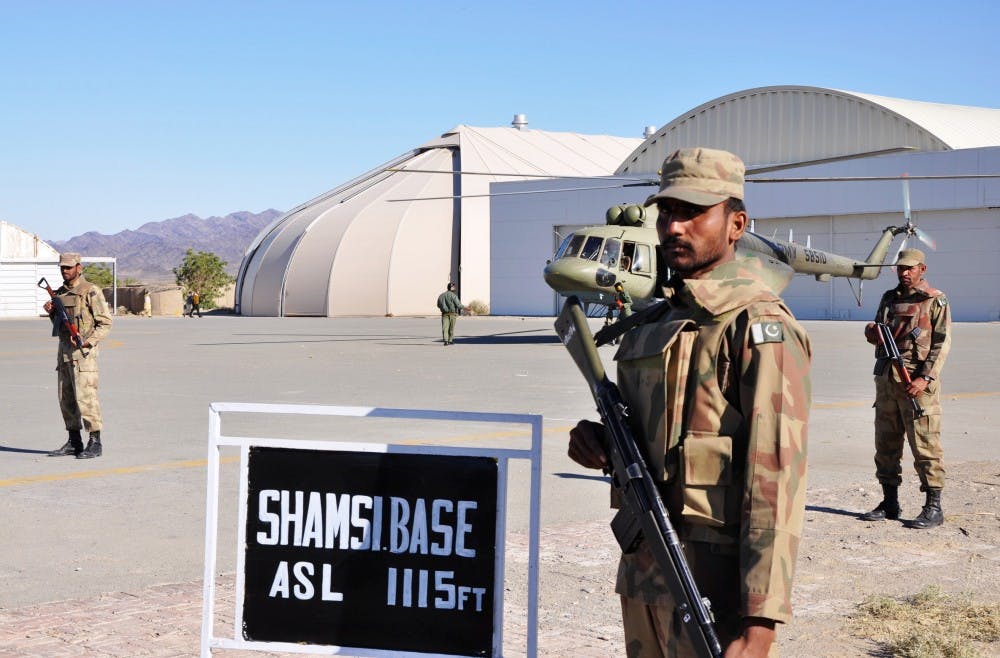Iran, and more especially Iranian foreign minister Javad Zarif, has been busy lately. Besides trying to conclude a controversial (and arguably unstable) deal with the U.S. over its nuclear program, Iran as represented by Zarif, has also been lobbying Pakistani Prime Minister Nawaz Sharif to stay out of the conflict in Yemen after Saudi Arabia asked it to send group troops to assist its coalition against Houthi rebels.
While I agree with Iran — wow, I actually said that — on Pakistan not getting involved, I feel that Saudi Arabia should still continue to ask for help and to intervene in Yemen. Besides trying to influence Pakistan, Iran has also being attempting influence other countries in the Middle East, most obviously Iraq with its Shiite militias.
Emma Ashford of The New York Times disagrees with me however. Ashford argues that the U.S. sees this conflict incorrectly as “merely a battleground between Sunni Arab countries and Shiite Iran for dominance in the Middle East,” rather than as a local conflict between ethnic parties, and that therefore its strategy regarding Saudi Arabia’s intervention is all wrong.
I agree with Ashford that the problem behind the Yemeni civil war is local, and that it has more to do with the economic impoverishment and political disenfranchisement of portions of the Yemeni population, than with Middle Eastern power politics.
But even as the conflict is local, it does have regional implications, as evidenced by Iran’s backing of the Houthi rebels both tacitly and through background military maneuvers and the Saudis asking the Pakistanis to come in and help with the fight against the Houthi and by implication their Iranian backers.
That’s why Iran is trying to convince Pakistan to stay out of the conflict, has started calling for a cease-fire and enlisted the aid of other countries, such as Russia and China, to help put it into effect.
After all, a cease-fire benefits Iran. The Houthi rebels are already in control of Sana’a, the capital of Yemen, and continue to make gains amid heavy fighting, in the strategic port of Aden at the moment. Any cease-fire would guarantee that the Houthi would be able to keep the territory they have already conquered, and there is no guarantee that they would agree to give up that territory even if a political settlement were reached.
Besides, the Houthi aren’t the only problem. Al-Qaeda in the Arabian Peninsula is taking advantage of the continued fighting to recruit and gain territory, and they are much more dangerous to the U.S. than the indigenous Houthis. Thus, the same logic applies to a cease-fire in this case as well, since it would only freeze the existing situation, which is not favorable to the U.S.
Saudi Arabia should keep its intervention going — because Saudi Arabian occupation will provide security — but without Pakistan’s help, mainly because Pakistan would only exacerbate the problem by getting involved. Pakistan’s support of the Taliban regime in Afghanistan as a counterweight to India (and even to U.S. intervention in the country) proves it would not be in our interests to let the country start playing around in Yemen. Not only this, but certain elements of Pakistani fighting power are not to be trusted, having trained alongside the al-Qaida, they now wish to fight alongside Saudi Arabia. The U.S. should keep this from happening at all costs.
Reach the columnist at jbrunne2@asu.edu or follow him on Twitter @JARBrunner4.
Editor’s note: The opinions presented in this column are the author’s and do not imply any endorsement from The State Press or its editors.
Want to join the conversation? Send an email to opiniondesk.statepress@gmail.com. Keep letters under 300 words and be sure to include your university affiliation. Anonymity will not be granted.
Like The State Press on Facebook and follow @statepress on Twitter.




